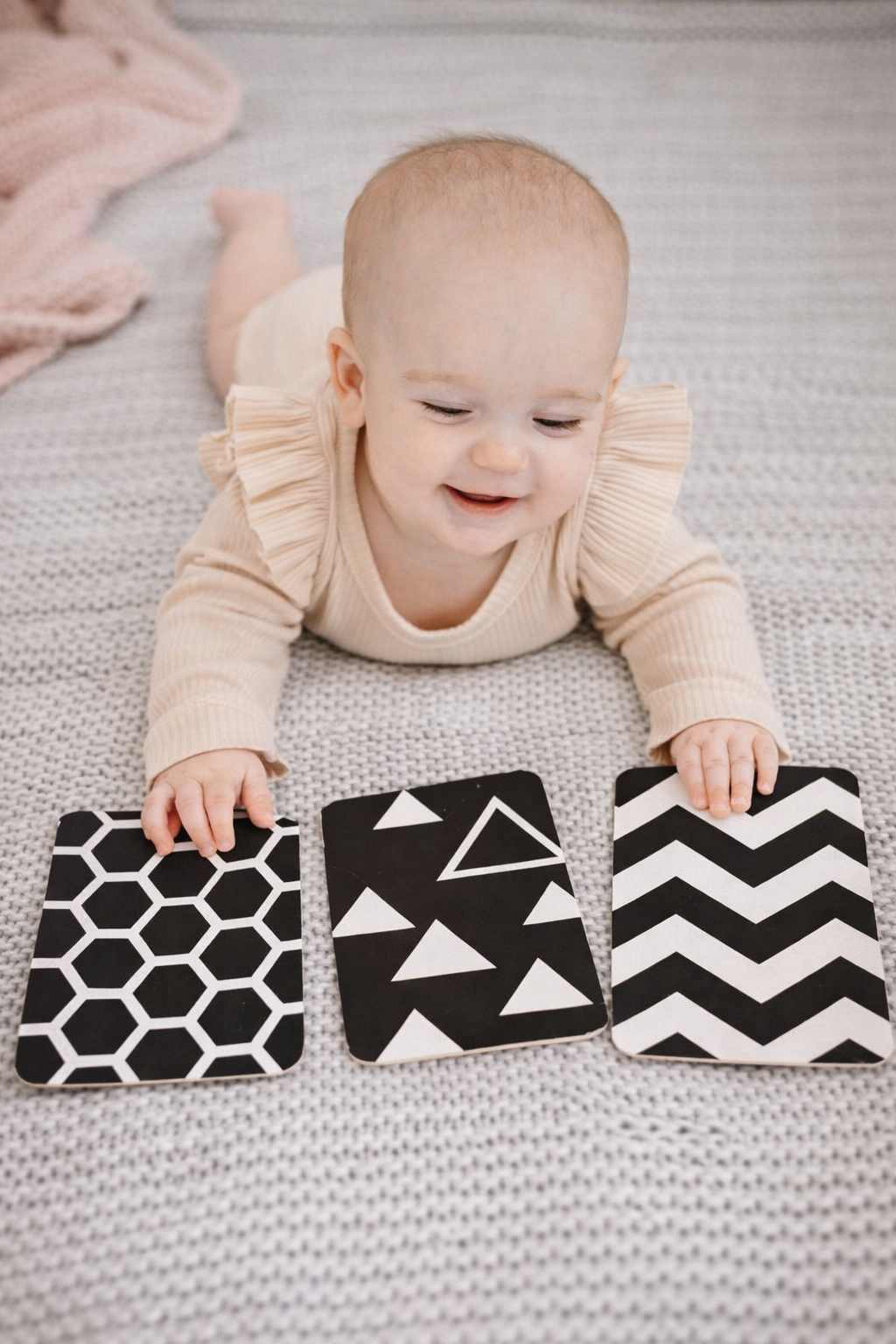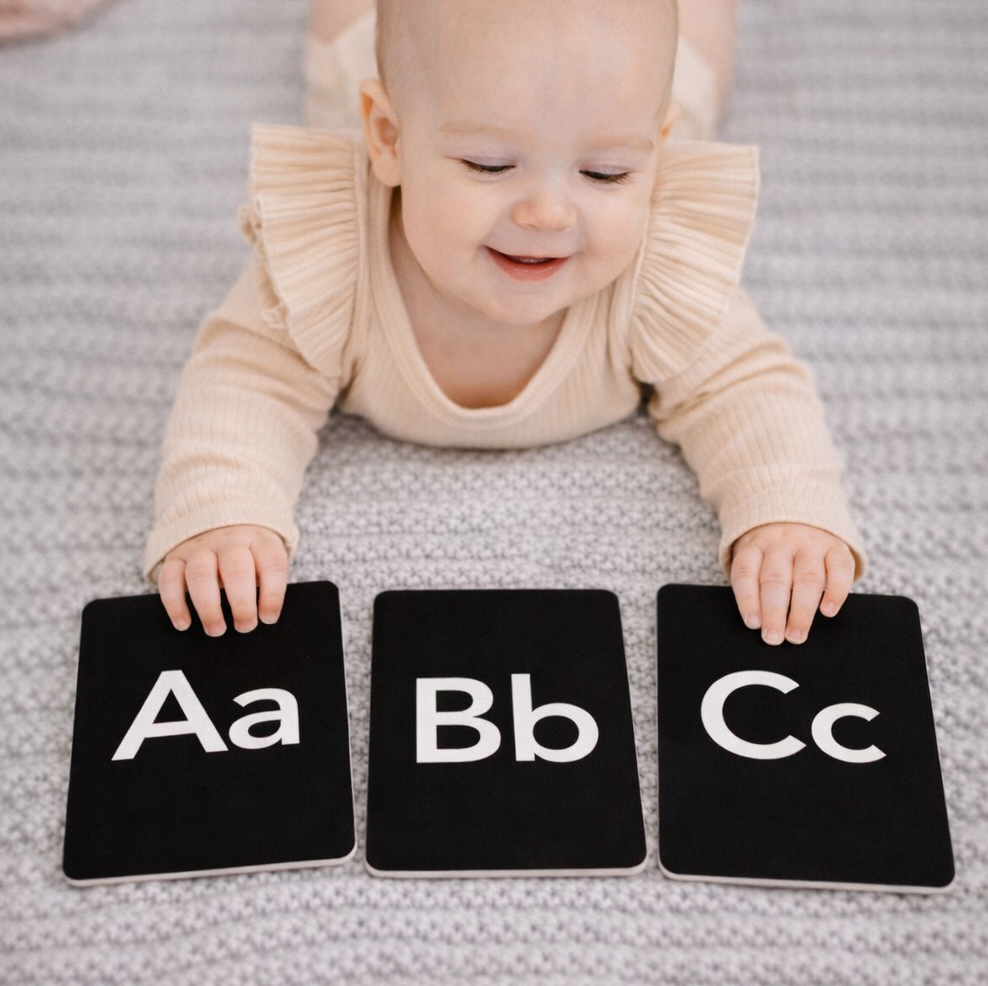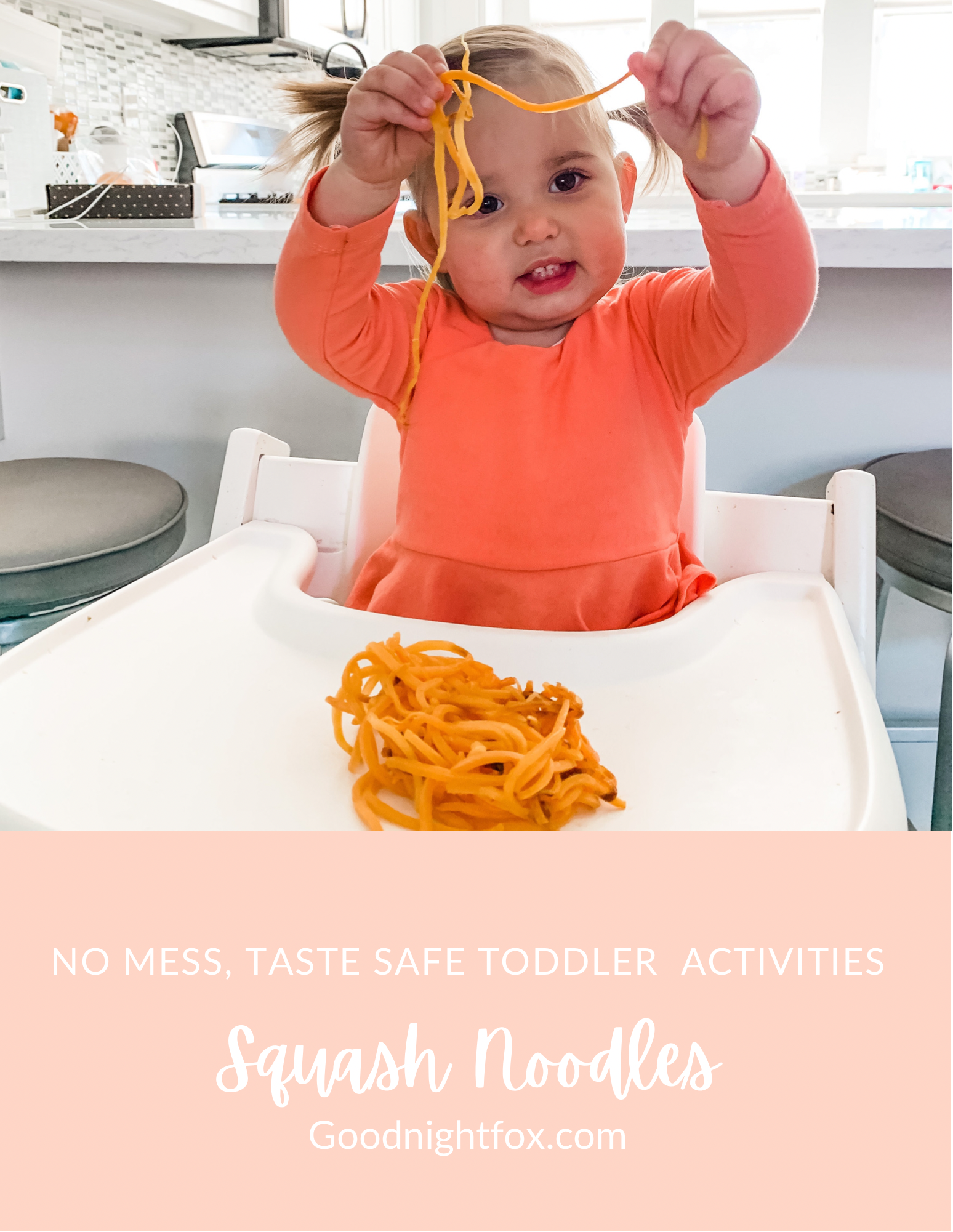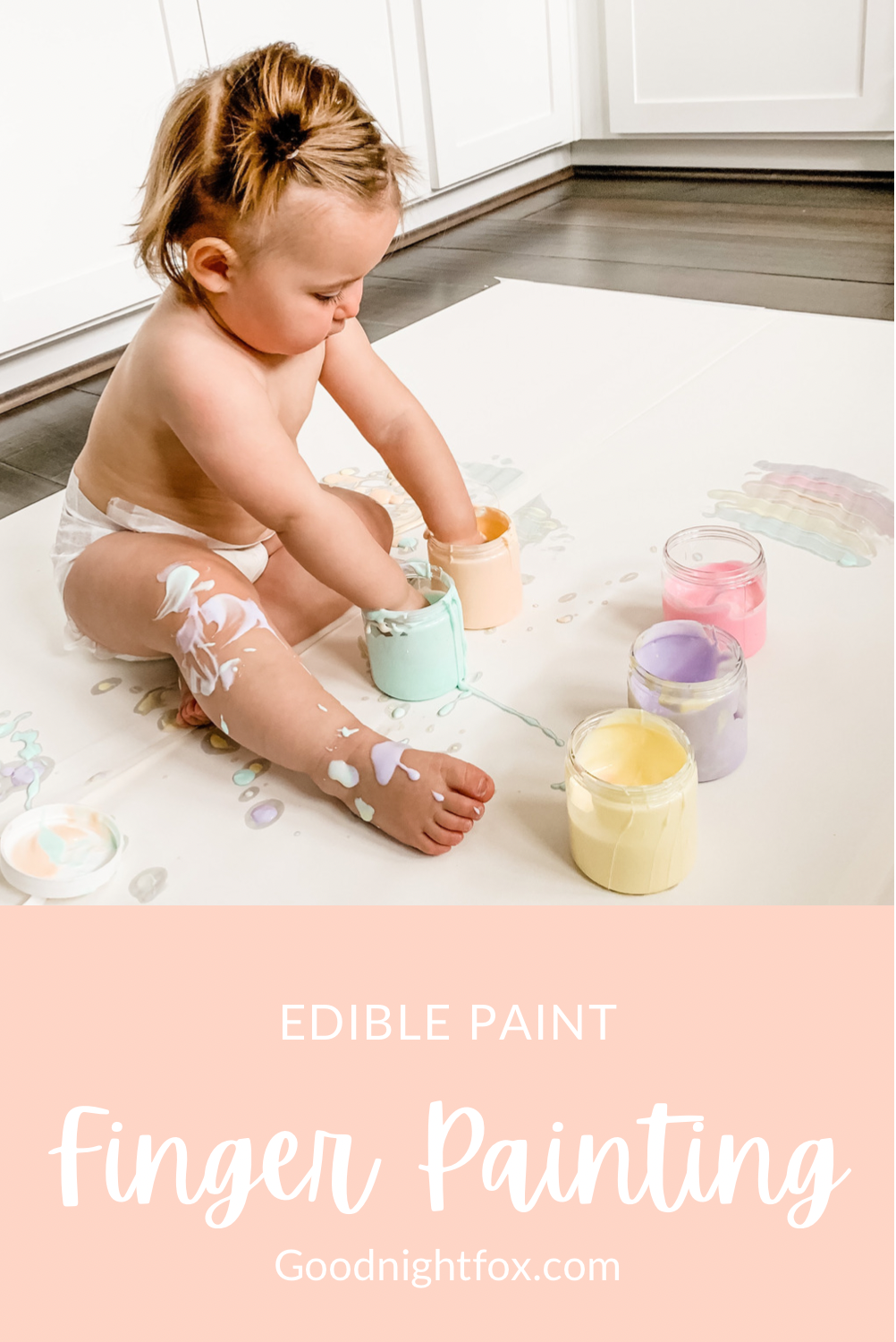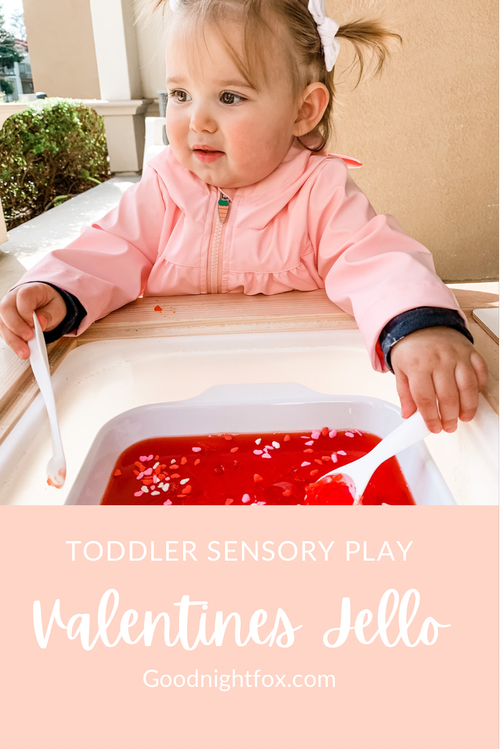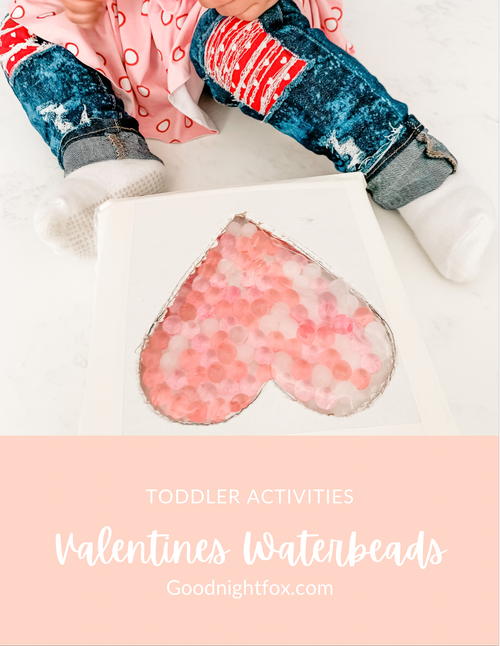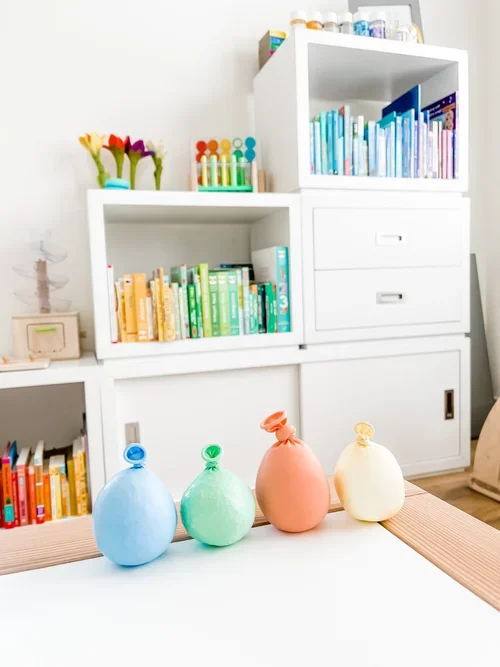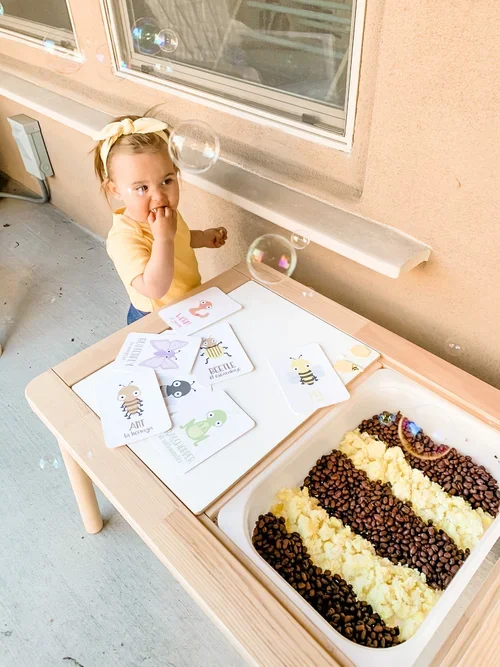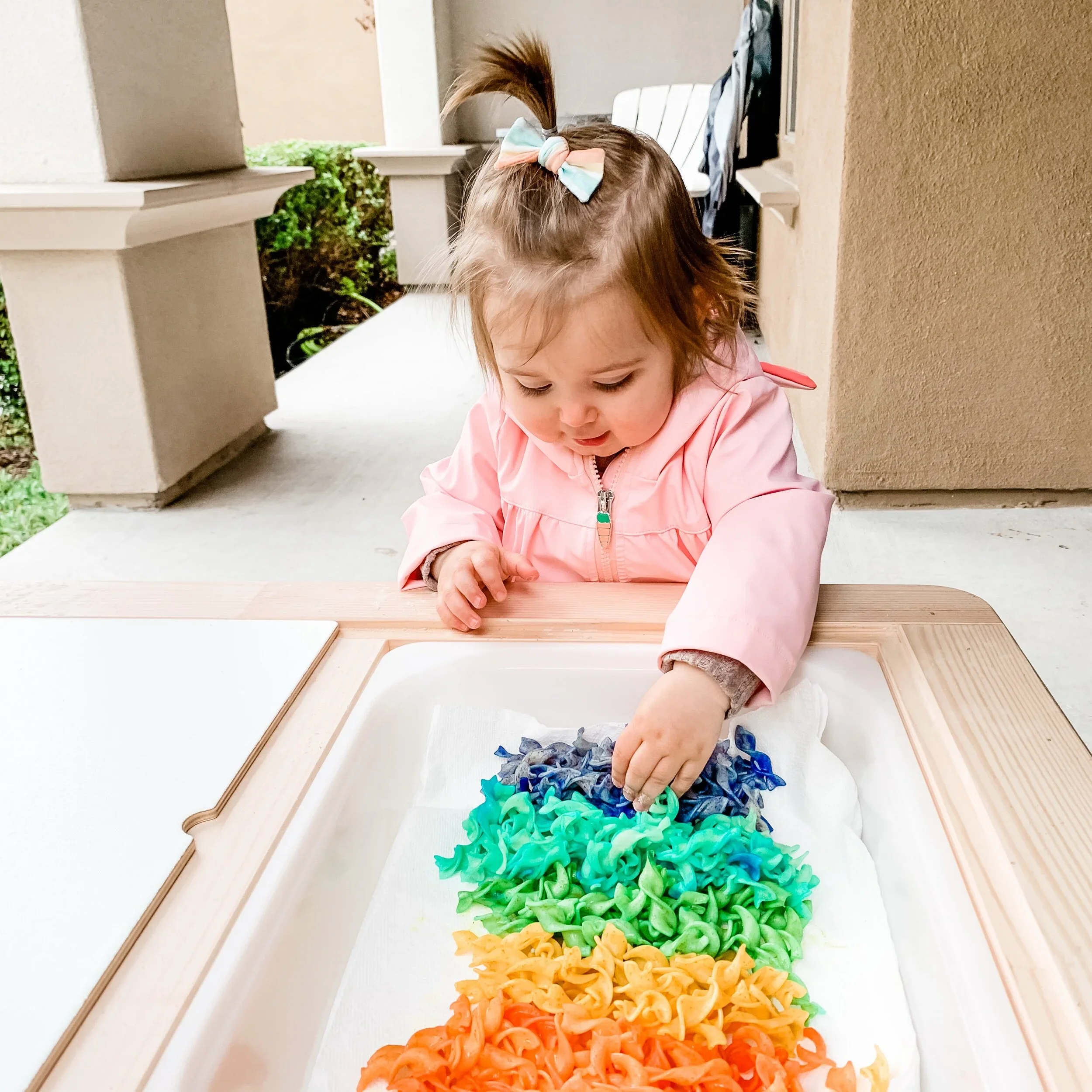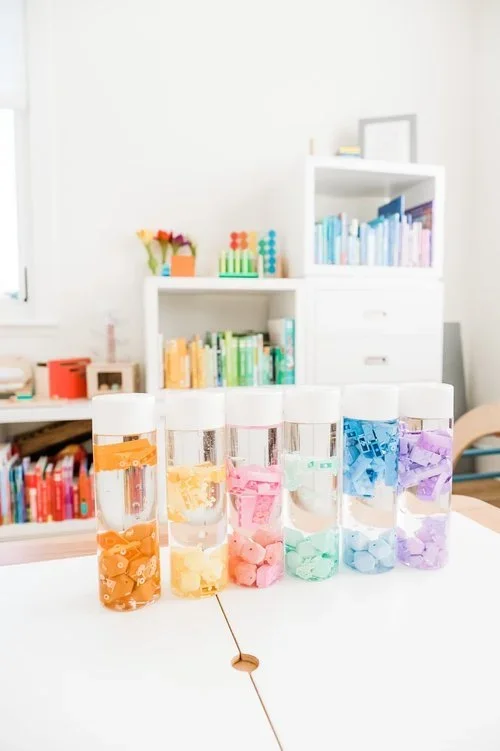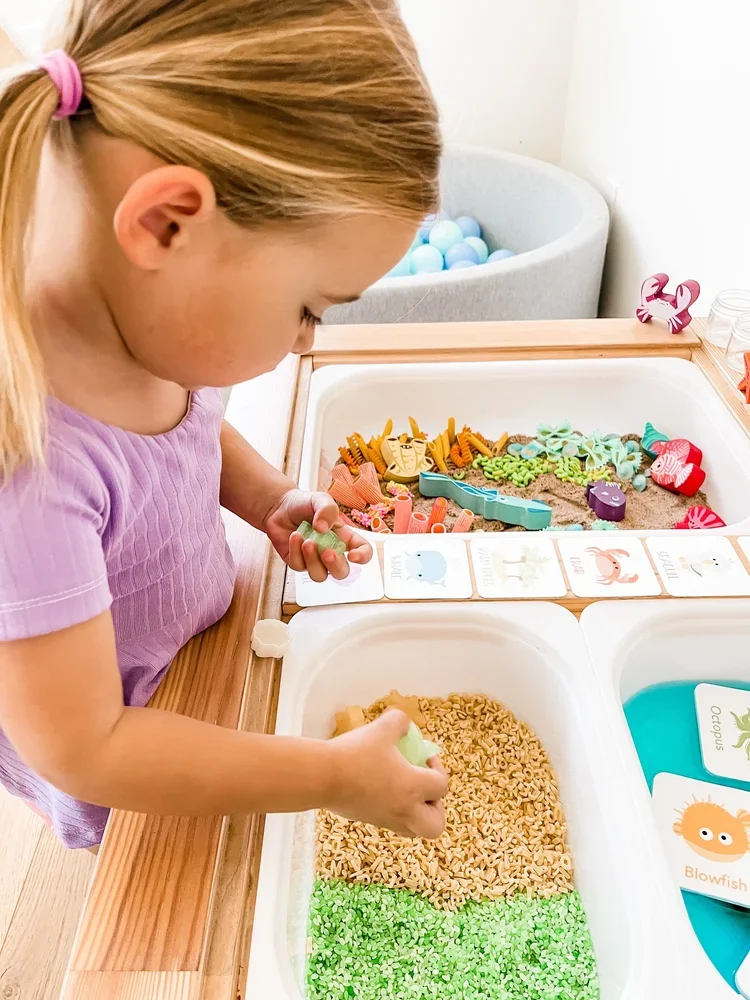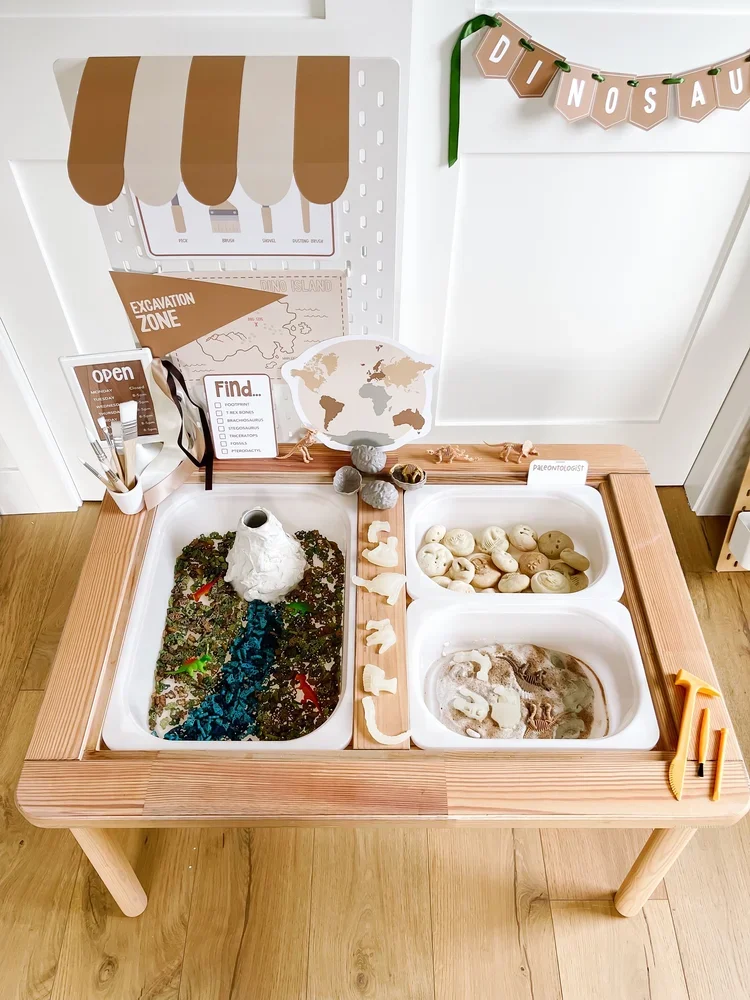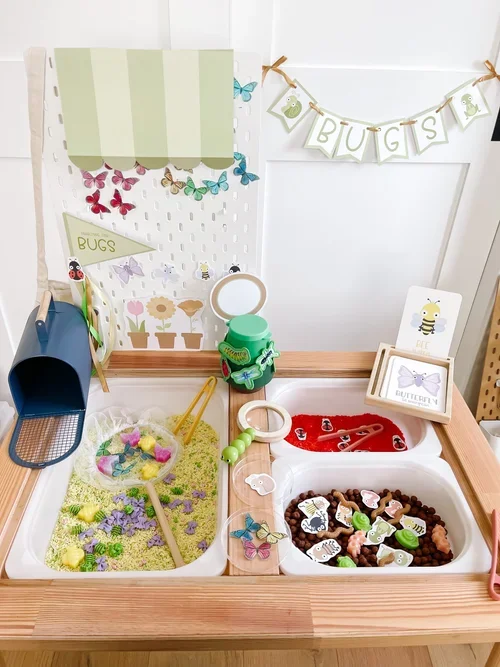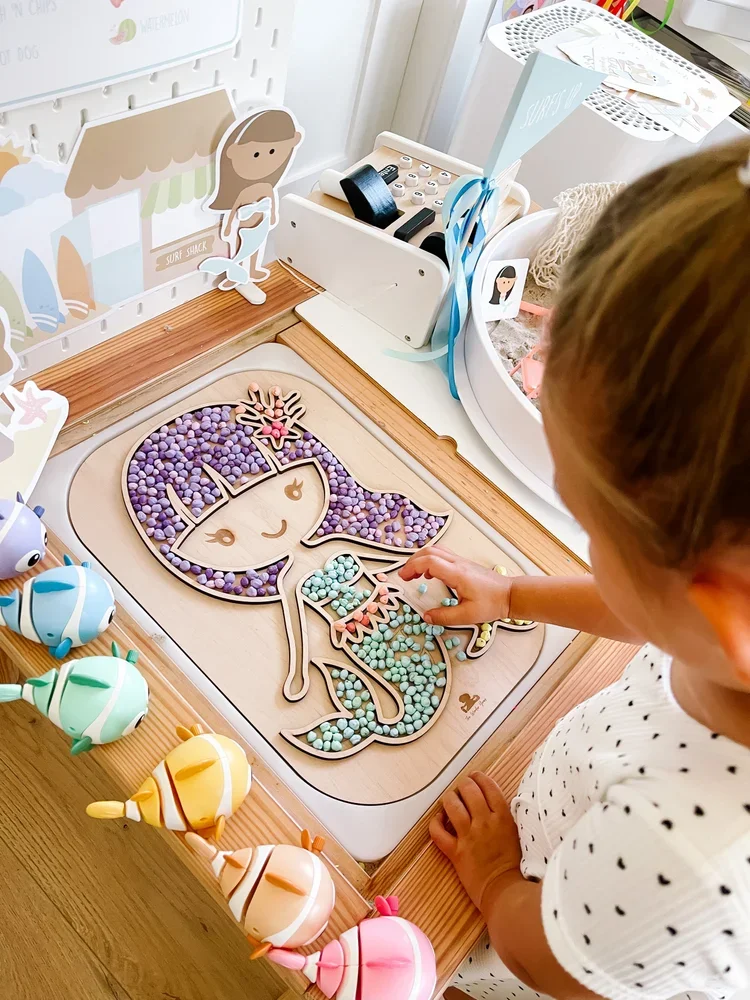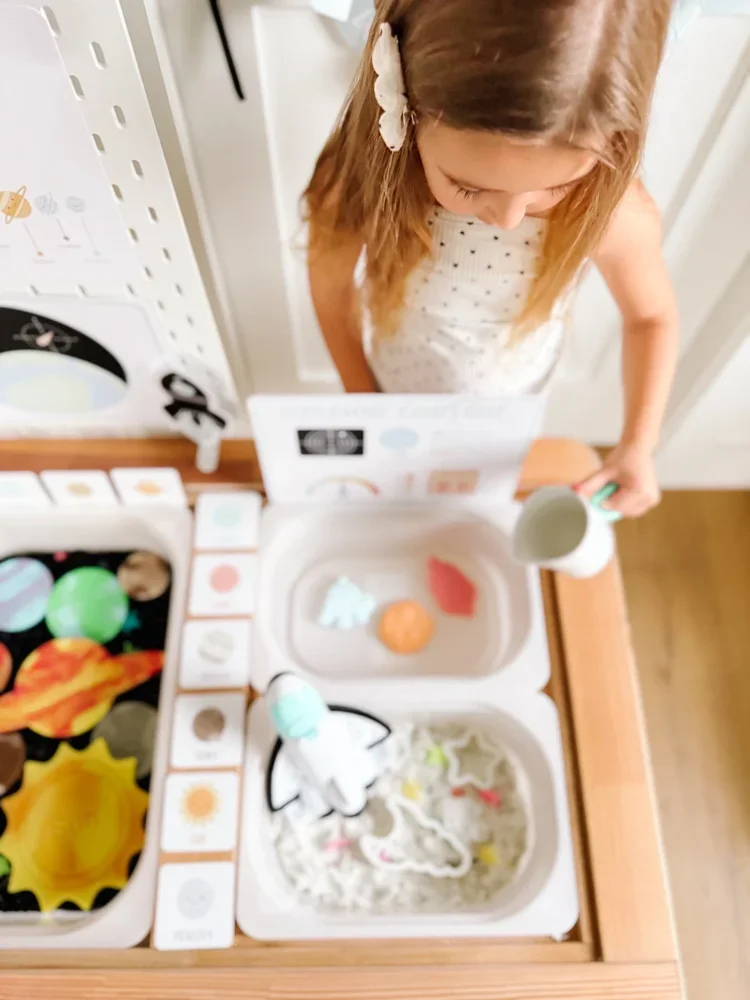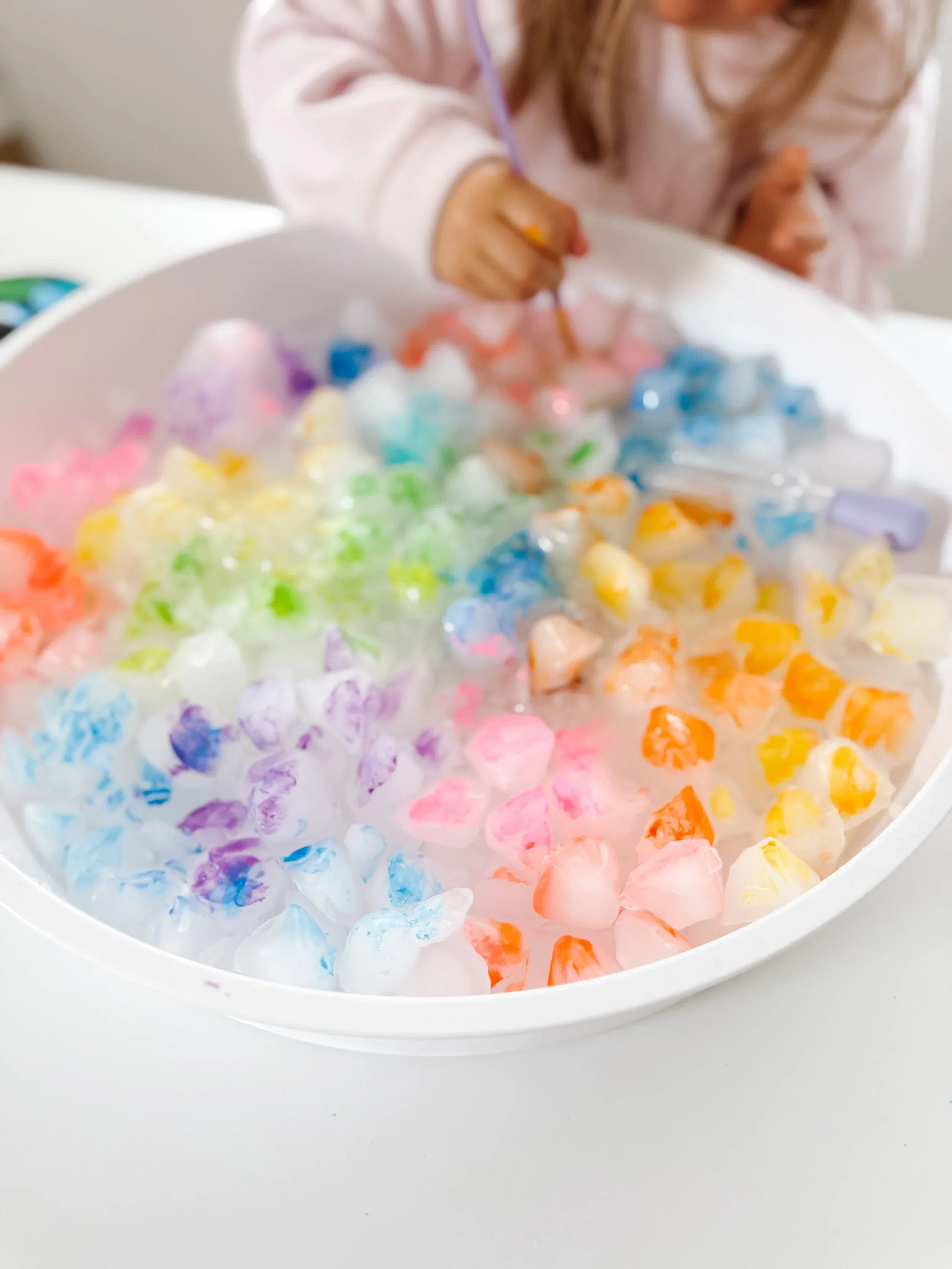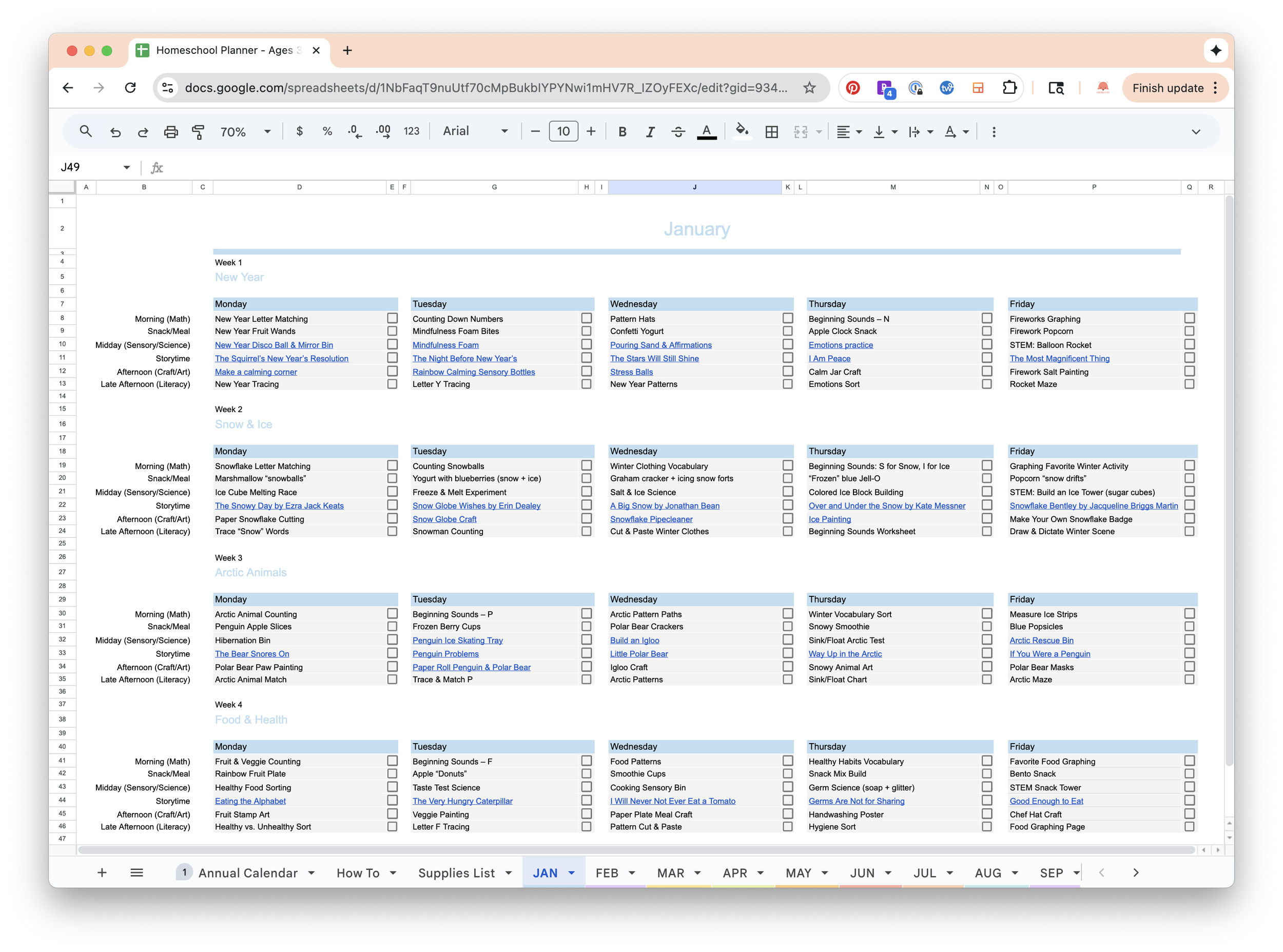Sensory Play & Learning Activities by Age (0–5 Years)
Choosing the right activities for your child can feel overwhelming — especially when every stage of development looks so different. This page helps you find sensory play ideas, crafts, and learning activities based on your child’s age, so you can confidently choose ideas that feel fun and developmentally appropriate.
Use this guide to explore:
Sensory play ideas by age
Themed sensory setups
Crafts and learning-through-play activities
Links to detailed blog posts, printables, and kits
Many of these ideas are also used inside our homeschool planner and themed sensory play setups, so you can easily reuse activities across play, learning, and celebrations.
0–6 Months: Sensory Foundations
At this stage, play is all about gentle sensory input. Babies are learning through sight, touch, sound, and simple movement.
Skills developing:
Visual tracking, grasping, tummy time, early cause-and-effect.
Sensory Play Ideas
High-contrast visuals (black & white)
Soft textures (fabric, silicone, felt)
Gentle sound exploration
Supervised taste-safe sensory play (as baby grows)
Featured Activities
High-Contrast Sensory Activities for Babies
Explore more:
6–12 Months: Exploration & Movement
Babies begin crawling, reaching, and experimenting with cause and effect. Sensory play becomes more active and exploratory.
Skills developing:
Pincer grasp, hand-eye coordination, movement, curiosity.
Sensory Play Ideas
Taste-safe sensory bins
Water play with cups and spoons
Texture exploration (soft vs. rough)
Shaking, dumping, and transferring
Featured Activities
Taste-Safe Sensory Play for Crawlers
Explore more:
12–18 Months: Interaction & Early Pretend Play
Toddlers begin engaging more intentionally with toys and activities. Language development and imitation grow quickly during this stage. This is also the age of big emotions and the perfect stage to begin building a calming corner and recognition of emotions.
Skills developing:
Early pretend play, language exposure, simple sorting, fine motor control.
Sensory Play Ideas
Scooping and pouring
Simple pretend play setups
Themed sensory bins
Color exploration
Featured Activities
Pretend Play Sensory Ideas for Toddlers
Explore more:
18–24 Months: Fine Motor & Independence
This is a golden age for sensory play. Toddlers love repeating actions, refining fine motor skills, and exploring with tools.
Skills developing:
Scooping, pouring, transferring, sorting, early problem-solving.
Sensory Play Ideas
Sensory bins with scoops and tongs
Pouring stations
Color and shape sorting
Tool-based sensory play
Featured Activities
Fine Motor Sensory Play for 18–24 Months
Explore more:
2–3 Years: Sorting, Themes & Small World Play
At this stage, children begin connecting play with learning. Themed sensory play and small-world setups become especially engaging.
Skills developing:
Sorting, categorizing, early math concepts, imaginative play.
Sensory Play Ideas
Small-world sensory bins
Theme-based sensory play
Matching and sorting activities
Language-rich pretend play
Featured Activities
Small World Sensory Play Ideas
Explore more:
3–4 Years: STEM, Crafts & Storytelling
Preschoolers love experimenting, asking questions, and telling stories. Sensory play at this age often blends science, art, and early academics.
Skills developing:
Storytelling, early STEM thinking, creativity, collaboration.
Featured Activities
Explore the Galaxy with Flisat Table Sensory Play (Space Station)
STEM Sensory Play for Preschoolers
Explore more:
4–5 Years: Planning, Challenges & Independence
Older preschoolers enjoy more complex play with goals, challenges, and longer attention spans.
Skills developing:
Planning, sequencing, independence, early logic.
Featured Activities
Challenge-Based Sensory Play Ideas for Preschoolers
Explore more:
Preschool learning resources
Want Everything Organized for You?
If you love these ideas and want them laid out week-by-week, many of these activities are also featured inside our play-based homeschool planner and themed sensory play resources — making it easy to plan meaningful learning through play.
Explore:

